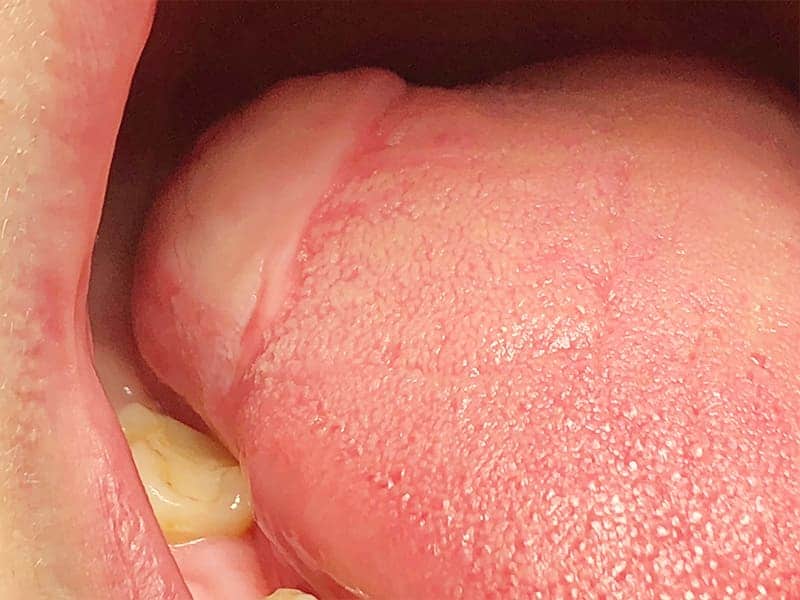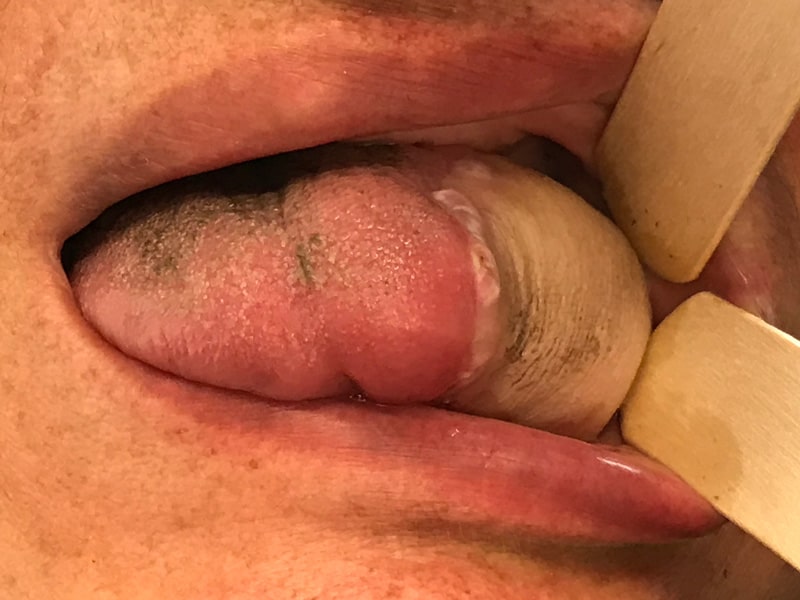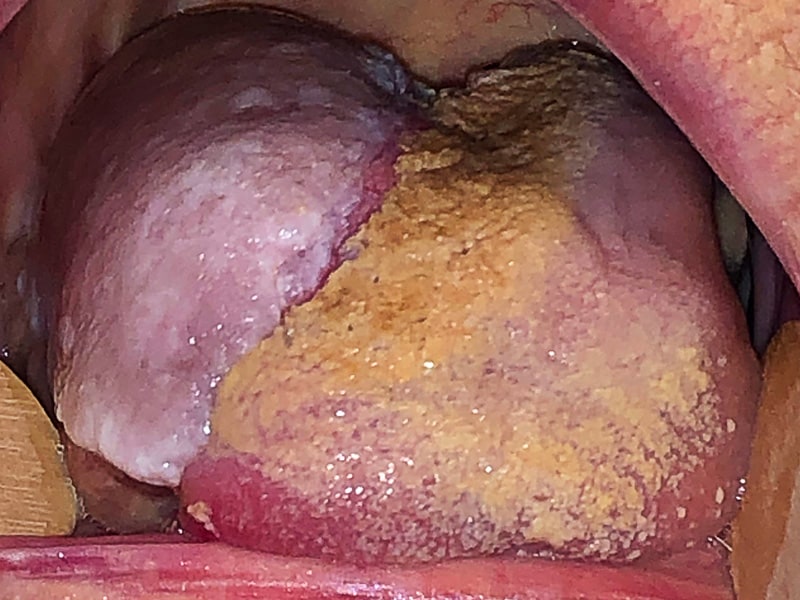Tongue transplantation or tongue reconstruction:
Surgical options to restore function and quality of life.
Recently, a well-known German biathlete had a serious accident at the World Cup and lost part of her tongue, which could be restored by transplantation ( read more here in the BILD article ). In addition to injuries, tumor diseases can also result in the need for a tongue transplant.
What is a tongue transplantation?
First of all, this is not a transplant from one person to another, but a so-called autotransplantation. This means that we, as the treating surgeons, use the patient’s own body tissue, usually from the thigh with its nerves and vessels, which then replaces the lost part of the tongue. The transplant is inserted/sewn into place and connected to the vessels and nerves there.
How often does this happen?
Tongue transplantation or reconstruction is usually required after cancer-related tongue loss and is operated on every week in appropriate centers, such as here at the Sana Klinikum Offenbach. Injury-related tongue loss is usually caused by the person concerned biting their tongue in a fall, car accident, etc., or being exposed to an explosion, and is less common.
How does tongue surgery work?
Under general anesthesia, the transplant is implanted in the patient’s tongue or tongue area that has been lost or removed due to a tumor. There it is connected to the existing vessels and nerves in the tissue in such a way that blood circulation, mobility and sensation are enabled.
For this purpose, a muscle-skin graft is removed – usually from the thigh, sometimes also from the back – in which the blood vessels and nerves are connected in combination (also known as an “anastomosis”). This is then connected to the new site very skillfully and in minute detail under the surgical microscope – nerve cords in particular are very fine. Nowadays, even modern surgical robots are used in such procedures.
What problems can occur?
Of course, this is not a minor operation, an injured tongue often swells up a lot, and depending on the patient’s history and state of health, a stay in intensive care may be necessary for a few days. In rare cases, the transplanted tissue can also die – a replacement graft is then inserted in its place in a second operation.
What is life like afterwards? Can patients feel, taste and speak normally again?
The extent to which function is restored in comparison with the uninjured tongue organ is still the subject of research and the extent to which “normality” can be restored also depends on the individual perception of each patient. In any case, it can be said with certainty that transplantation significantly improves the situation in almost all cases compared to before the transplantation, especially with regard to chewing, eating, swallowing and speaking.
In any case, the athlete mentioned at the beginning has completed her transplant with a good result and can now speak, eat and drink normally again, according to her own statements. (BILD Artikel).
You can find out more about transplants in many other areas of our treatment spectrum.
Do you have any questions? Prof. Landes will be happy to talk to you personally – simply contact our practice!








